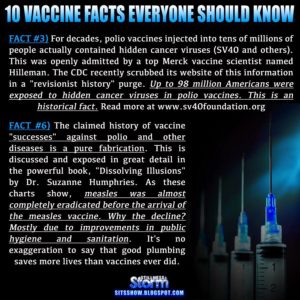
Representative-elect Mark Green (R) (Tennessee) (twitter and twitter news) pledges to investigate claims that the CDC is fraudulently managing the vaccine-damage data they collect. This story is a developing.
In light of this development, I am re-posting this article of mine from July 2015. July 2015 was seemingly the last time a Congressman took a stance on this issue — and did so on the House floor — in order to get claims of fraud into the Congressional record.
Let’s take a walk down memory lane…
Bombshell: CDC destroyed vaccine documents
July 2015
“…the [CDC] co-authors scheduled a meeting to destroy documents related to the [MMR vaccine] study. The remaining four co-authors all met and brought a big garbage can into the meeting room and reviewed and went through all the hard copy documents that we had thought we should discard and put them in a huge garbage can.” (William Thompson, CDC researcher)
On July 29, 2015, US Congressman Bill Posey made his last stand on the floor of the House. Granted five minutes to speak, he laid bare the lying of the CDC in a now-famous 2004 study that exonerated the MMR vaccine and claimed it had no connection to autism.
“No connection to autism” was the lie.
Congressman Posey read a statement from long-time CDC researcher William Thompson, one of the authors of the 2004 Pediatrics study designed to determine, once and for all, whether the Measles-Mumps-Rubella vaccine could cause autism.
Thompson saw and participated in violating the protocol of the study. He was there. He helped his co-authors destroy documents that would have shown an MMR-autism link.
You can see a transcript of Congressman Posey’s remarks here (on the ageofautism.com website), which includes his reading of a statement from whistleblower Thompson.
Posey pleads with his colleagues for a Congressional investigation.
Of note: two of the CDC researchers on the infamous 2004 study, who according to Thompson, destroyed vital documents, are Coleen Boyle and Frank DeStefano. They are both high-ranking executives at the CDC in the area of vaccine safety.
This calls into question every single CDC study, under their tenure, that claims vaccines are safe.
CDC whistleblower Thompson’s statement, which Posey read on the House floor, includes this bombshell:
“However, because I [Thompson] assumed it [destroying the documents] was illegal and would violate both FOIA and DOJ requests, I kept hard copies of all documents in my office and I retained all associated computer files. I believe we intentionally withheld controversial findings from the final draft of the Pediatrics paper.”
Thompson has the smoking-gun documents. So does Congressman Posey. I believe others do as well.
https://www.nexusnewsfeed.com/article/jon-rappoport/cdc-whistleblower-case-to-resurface-in-2019/
https://www.nexusnewsfeed.com/article/jon-rappoport/cdc-whistleblower-case-to-resurface-in-2019/










